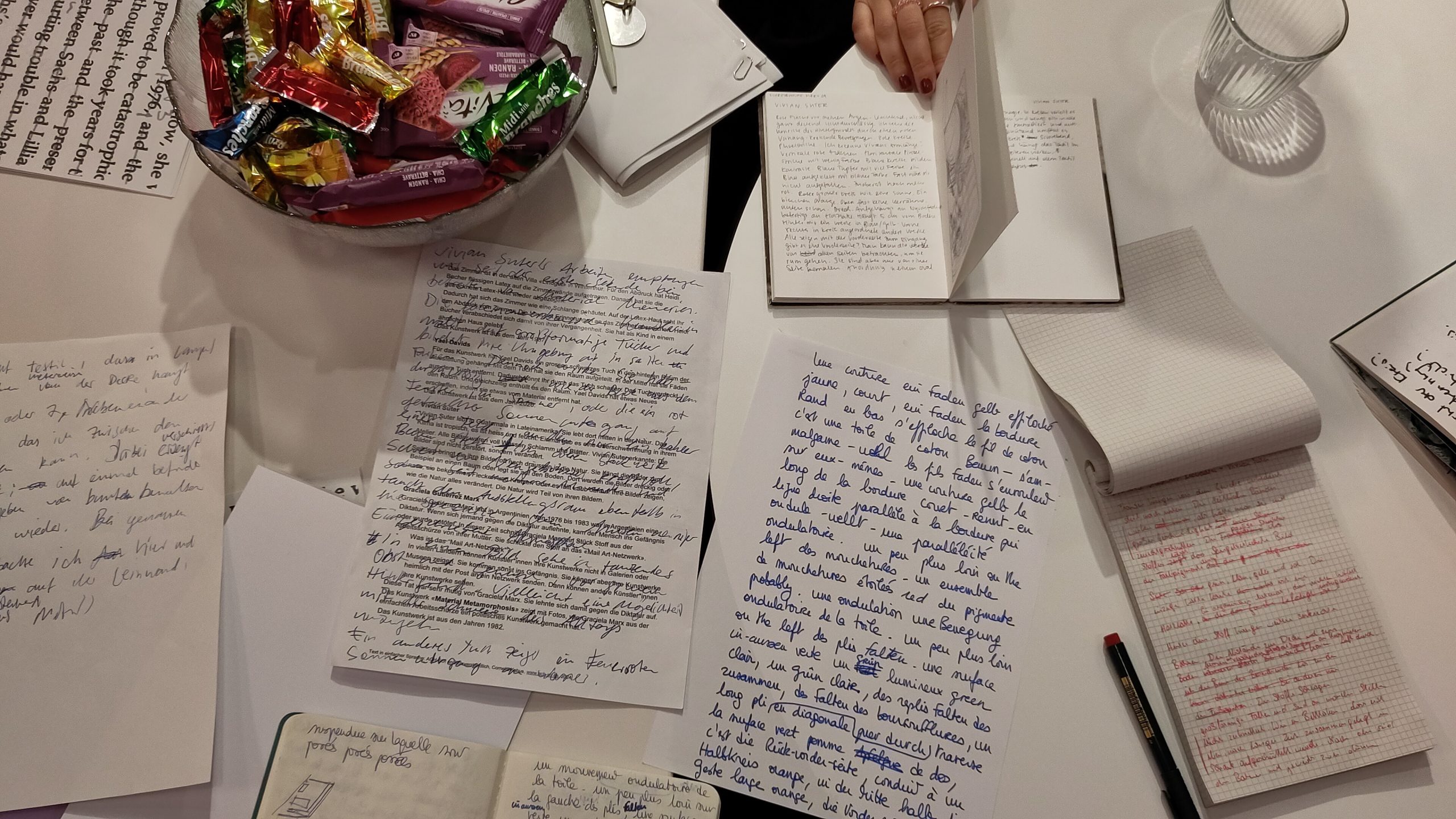On writing
Art-Science series
H18:00-20:00
Art-Science series
H18:00-20:00
The event will be held in English at H18:00 at Istituto Svizzero, via Liguria 20, Roma
Workshop (limited spots), register here.
Free entrance
Talk & performance, register here.
Free entrance
On writing
Writing is the daily practice of many researchers, be it in scientific or artistic fields. In the humanities and social sciences, such as history or anthropology, writing is a constitutive practice, because it is by way of narratives that the research is transmitted. For artists, writing can be a method of developing ideas, it can be one of their multimedia practices, or it can be the main means of artistic expression.
And yet, things are often less clear, and the boundaries between different forms of writing are often blurry. In many fields, writing is governed by strong conventions of text genres, by the use of a specific, sometimes also inaccessible vocabulary, as well as by literature canons. While they determine how one should write, many researchers experiment how to write at the margin of such genres and go beyond disciplinary conventions, also seeking for more inclusive writing practices. Artistic writing practices may likewise be governed by conventions, even if there seems to be more space for experimental practices.
With this transdisciplinary event, we aim to explore contemporary writing practices in different artistic and scientific fields, from theoretical and methodological perspectives, but also by way of writing. To what extent does the idea of narration embrace scientific and artistic practices?
The event is part of the Art-Science series dedicated to the encounter between scientific research and artistic practices, curated by Maria Böhmer (Head of Science) and Gioia Dal Molin (Head Curator).

The event may be photographed and/or video recorded for archival, educational, and related promotional purposes. By attending this event, you are giving your consent to be photographed and/or video recorded.
PROGRAMME
Workshop (limited spots, registration required)
H15:30-17:30
Delphine Chapuis Schmitz — Writing resonances
How can writing be expanded beyond given disciplinary frameworks? How to set aside entrenched patterns and open up to unforeseen resonances? How to make room for a density of senses? The workshop proposes to address these questions in a setting that brings together practitioners from the arts and sciences. It unfolds as an iterative process designed to activate and embrace resonances between different kinds of textualities, inviting participants to experiment with writing from a transversal perspective.
Talk & performance (evening event)
H18:00-18:30
Caroline Arni — A True Novel: History-writing as Creative Writing
Talk
The French historian Paul Veyne once wrote, « History is a true novel. » Starting from this idea, the relationship between academic and literary writing will be explored. In historiography, the question of narrative—or, more precisely, the inevitable narrativity of history-writing—often plays a central role in such discussions. This is the starting point of the reflection, which will then be extended by examining how specific literary methods can be mobilized in historical writing.
H18:30-19:00
Ruth Amstutz — Decolonial Feminist Writing and the Politics of Form
Talk
This talk will begin in the kitchen of Maria Lugones, decolonial feminist philosopher and activist, with her metaphor of curdling—the separation of oil and water that occurs when overmixing mayonnaise—as a practice of resistance against multiple oppressions. Ruth is particularly interested in the « art of curdling » that Lugones proposes and performs in her essay Purity, Impurity, and Separation: writing strategies that tap into the subversive potential of transgressing linguistic and formal conventions of academic writing.
H19:00-19:30
Delphine Chapuis Schmitz — I Write My Body With
Lecture-Performance
In this lecture-performance, a poetic reflection on writing is proposed as a process of (un)making sense. A textual composition will be staged in which meaning emerges from the kneading, mixing, and weaving of words, away from the dominant acts of meaning production. As languages cross-pollinate and writing proliferates, sense-making becomes a complex gesture in which aesthetic and semantic dimensions intermingle through a series of shifts and displacements.
H19:30 ― Aperitif
On writing
On writing